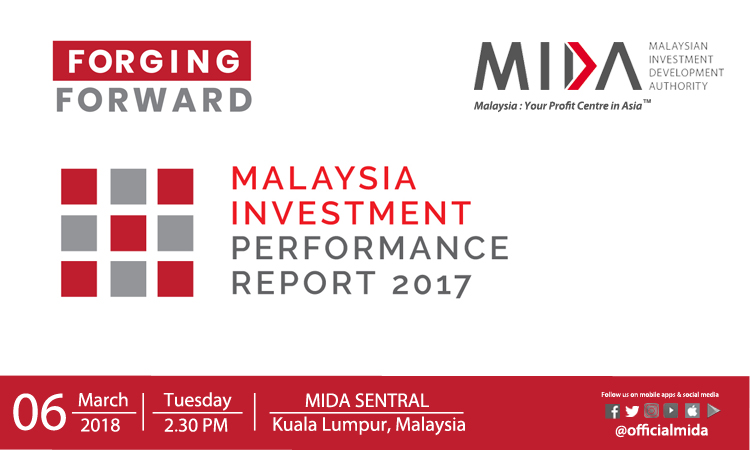Indian Entrepreneurs Urged to Leverage on Programmes & Facilities Provided by the Government
22 January 2018, Kuala Lumpur – “Notwithstanding our presence of more than 50 years in charting the industrial development of the country, there is still a lack of awareness on MIDA’s function in assisting and facilitating domestic companies as well as SMEs, especially among the Indian businessmen. Through today’s engagement, we hope to deepen our engagement with the Indian business community, which forms an integral part of local companies in the country,” said YBhg. Datuk N. Rajendran, Deputy Chief Executive Officer (DCEO) of MIDA during the exclusive media session with the Indian press held today.
“The Government has long recognised the capabilities and prospects of local companies in driving the economic growth of the country. For the first nine months of 2017, Malaysia recorded a total of RM113.5 billion worth of approved investments from 3,886 projects in the manufacturing, services and primary sectors. More than 73.5% of the approved investments were from local sources. Thus, we would like to urge more local companies, including those owned/managed by Indian entrepreneurs to come on board by leveraging on the programmes and facilities provided by the Government. Among them include the Domestic Investment Strategic Fund (DISF) that aims to accelerate the shift of Malaysian-owned companies in targeted industries to high value-added, high technology, knowledge-intensive and innovation-based industries. As at December 2017, a total of 270 projects with investments amounting to RM13 billion have been approved grants totaling RM1.3 billion under this fund,” added Datuk N. Rajendran.
The DCEO of MIDA also commented that Indian entrepreneurs should align their operations with Industry 4.0 by adopting automation and smart manufacturing that will increase productivity and competitiveness as well as reduce dependency on foreign labour. “Throughout 2017, MIDA organised several programmes to create awareness on the Industry 4.0. We will continue to undertake such programmes this year to disseminate information on available facilities to assist local companies in undertaking this venture such as the Accelerated Capital Allowance (ACA) for automation expenditure. For ACA, a total of 71 applications for automated spending allowance incentives have been approved until October 2017.”
MIDA has also established a dedicated SME Investment Desk in its headquarters and all its state offices throughout Malaysia. Malaysian businesses and SMEs should take advantage on this single contact point in MIDA HQ and all its State Offices, to obtain guidance and advice on the Government’s initiatives and facilities in building sustainable business collaborations through supply chain development on the local, regional and global levels.
More than 15 media representatives attended the exclusive media session from various Indian publication companies and online newspapers. The programme is part of MIDA’s continuous efforts to update the Indian entrepreneurs especially on the latest policies and facilities that are available. They are encouraged to follow MIDA’s official website and social media for the latest announcements and updates of facilitation and programmes related to business opportunities at www.mida.gov.my or @OfficialMIDA on Facebook and /OfficialMIDA on Twitter.
*****
For more information, please contact:
Mr. Ahmad Tajudin Omar
Director, Domestic Investment Division, MIDA
Tel.: 03-2267 3627 | Email: [email protected]
Mr. Sashirao Appanah
Assistant Director, Domestic Investment Division, MIDA
Tel.: 03-2267 3664 | Email: [email protected]
Download:
Posted on : 22 January 2018
MIDA Deepens Its Engagement With The Indian Business Community
Content Type:
Duration:







